Creede, Colorado
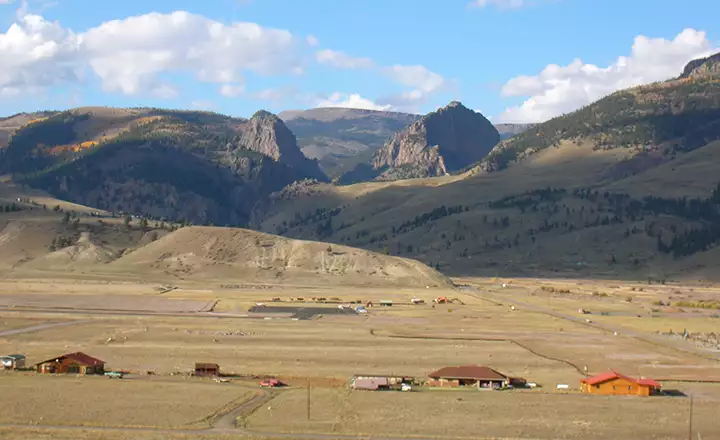
Twin rocky summits marking the caldera of Creede
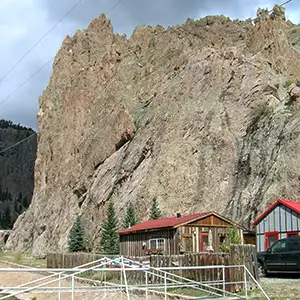
"One of the best places to live in North America"
Mother Earth News
"One of the 100 Best Art Towns in America"
100 Best Small Art Towns in America
"Some outstanding and surprising reasons to be here include its
nationally acclaimed Summer Repertory Theater"
Bed & Breakfast in Colorado
The settlement of Creede was kick-started in 1889 when Nicholas Creede, who was just passing through, stopped for lunch and discovered what became the Holy Moses Mine. Almost overnight his camp became a tent city. The town grew by 300 people a day in the summer of 1890.
At the same time that Creede was first booming, Denver was going through a backlash against saloons and gambling dens. A lot of the biggest names in Denver's gaming and drinking "establishment" packed up and moved their operations to Creede. By 1892 there were more than 10,000 people living in Creede. Among them were quick-draw artist Calamity Jane Canary, con man Joseph Randolph "Soapy" Smith, lawman Bat Masterson (formerly Town Marshal of Trinidad, CO), and cigar-smoking cardshark Poker Alice. The infamous Bob Ford (assassin of Jesse James) also came to Creede from Walsenburg and opened a saloon and gambling house.
On June 5, 1892, most of Creede's business district was destroyed in a fire. Almost overnight a tent city was erected to replace it. On June 8, Sheriff's Deputy Ed O'Kelley from Bachelor walked into Bob Ford's makeshift tent saloon and shot him in the back of the neck with a shotgun. O'Kelley was quickly arrested and, lawman or not, he was convicted of manslaughter and spent the next 10 years in the Colorado Penitentiary in Canon City. O'Kelley said he did it because, as a member of the James Gang, Bob Ford had once invaded O'Kelley's grandmother's home and pulled her fingernails out trying to make her tell where her money was hidden.
A few days later, on June 13, the town of Creede was incorporated. Right after that the anti-gambling/anti-drinking reform movement in Denver came to an end and many of the big operators in Creede abandoned the town and moved back to Denver.
In 1892, the mines around Creede were yielding a million dollars worth of silver ore a month. In 1893 Congress repealed the Sherman Silver Purchase Act and the price of silver dropped from $1.29 per ounce to fifty cents. Creede almost closed down but the townspeople pulled together and came through. In 1939, 500,000 ounces of silver were still shipping from the mines every week. By 1966, that number had dropped to 150,000 ounces per year. From 1900 on, Creede's economy relied more and more on the value of the zinc, copper and lead coming out of the mines than on the silver.
The picturesque town of Creede has numerous attractions including an underground fire station and the renowned Creede Repertory Theatre. The entire town has been declared a National Historic District. Creede also makes a good base camp for exploring the myriad recreational possibilities of the area: while you're here, you need to take the drive through history and incredible scenery along the Bachelor Loop, it's a great introduction to what Creede was and is about.
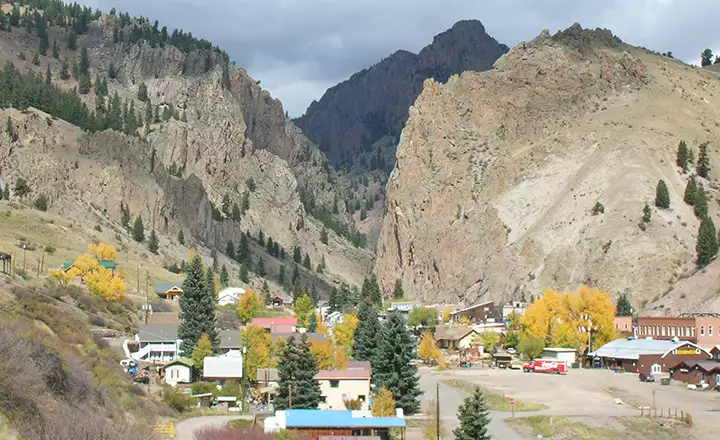
Looking down from just above town
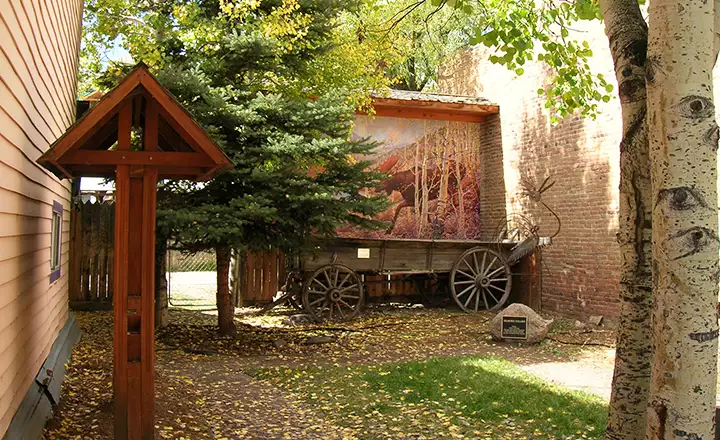
The Creede Art Park
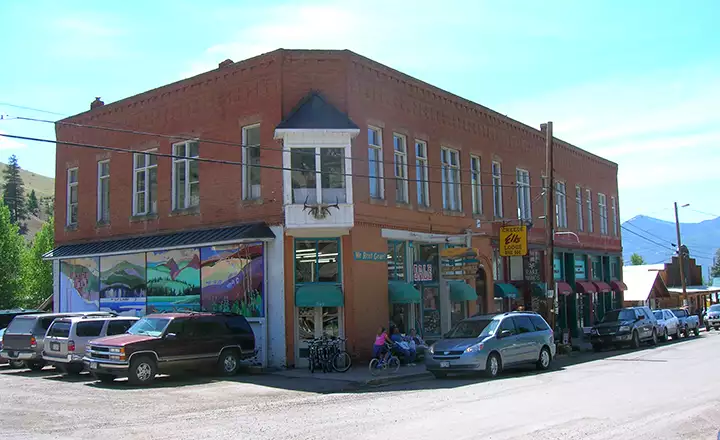
The Creede Elks Lodge
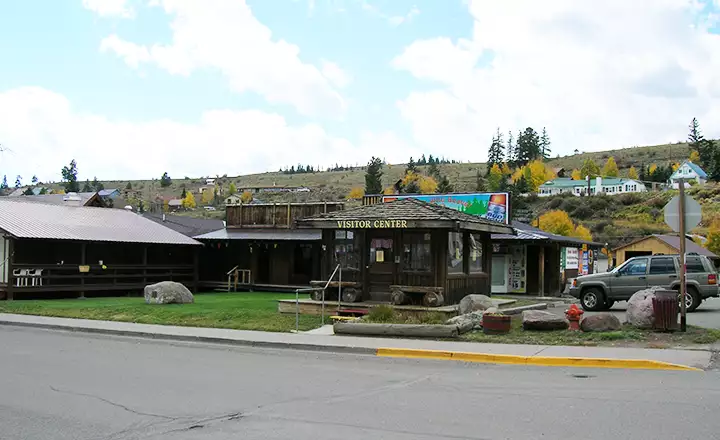
The Creede Visitor Center
A geological wonder, Creede sits in the La Garita Caldera, formed millions of years ago in the same volcanic eruption that created the spectacular Wheeler Geologic Area.
Mineral County is 95% national forest and public access lands with alpine valleys, clear streams, high mountains, and the La Garita and Weminuche Wilderness Areas, rimmed by the Continental Divide.
To explore the magnificent natural wonders of the area in every season, simply follow the Silver Thread Scenic Byway from South Fork, along the Rio Grande, by the Palisades, past Creede, past Clear Creek Falls, over the Slumgullion Earthflow, past Lake San Cristobal, through Lake City and up to the intersection with the West Elk Scenic Byway (US 50) at Blue Mesa Reservoir.
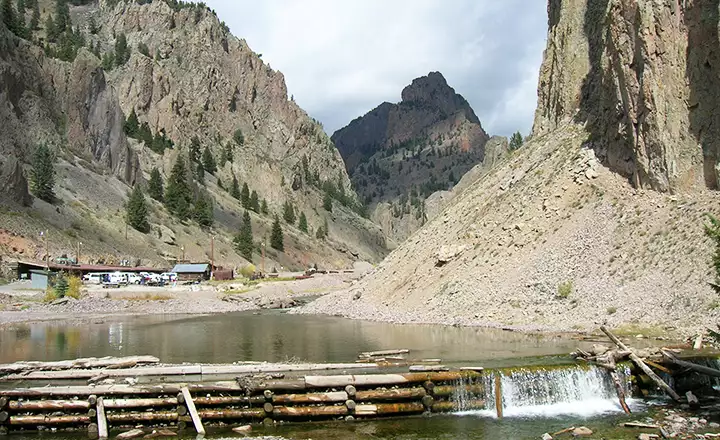
At the north end of town
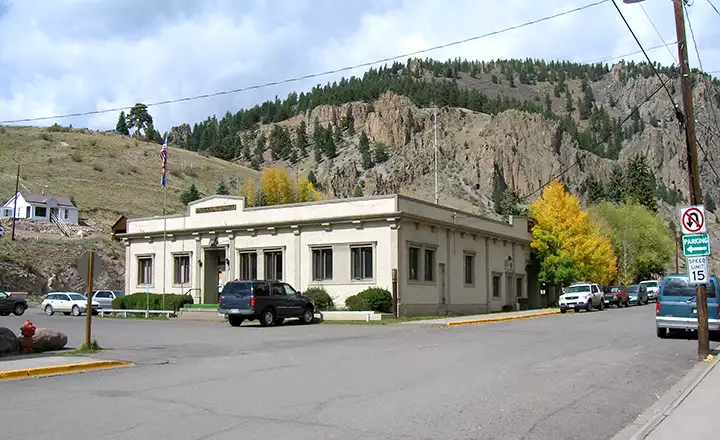
Mineral County Offices
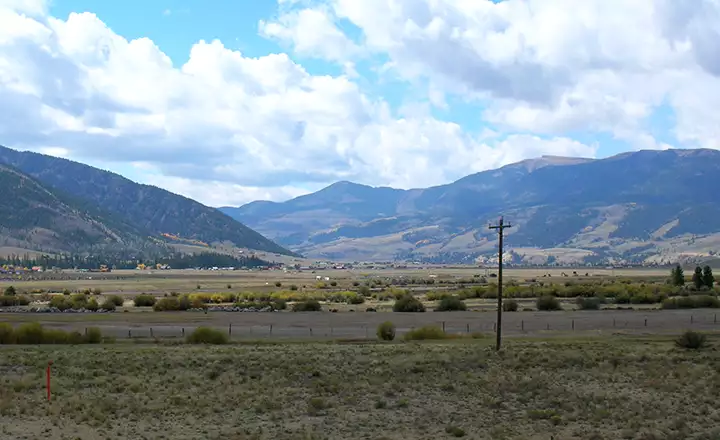
The Rio Grande Valley, just south of Creede
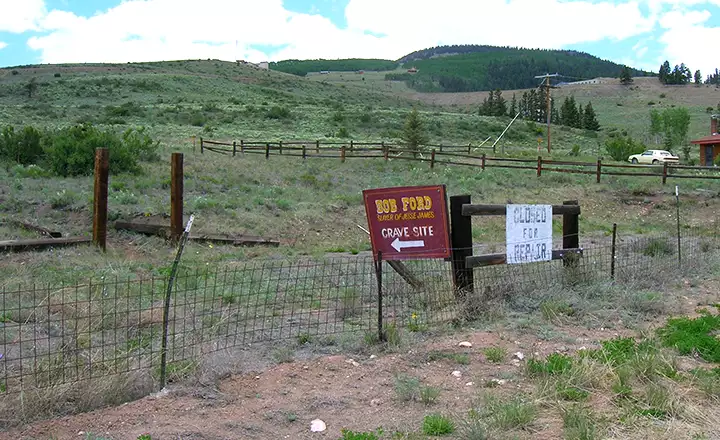
Bob Ford's grave site
Mineral County Related Pages
Creede - Mineral CountySilver Thread Scenic Byway - Rio Grande National Forest
La Garita Wilderness - Weminuche Wilderness